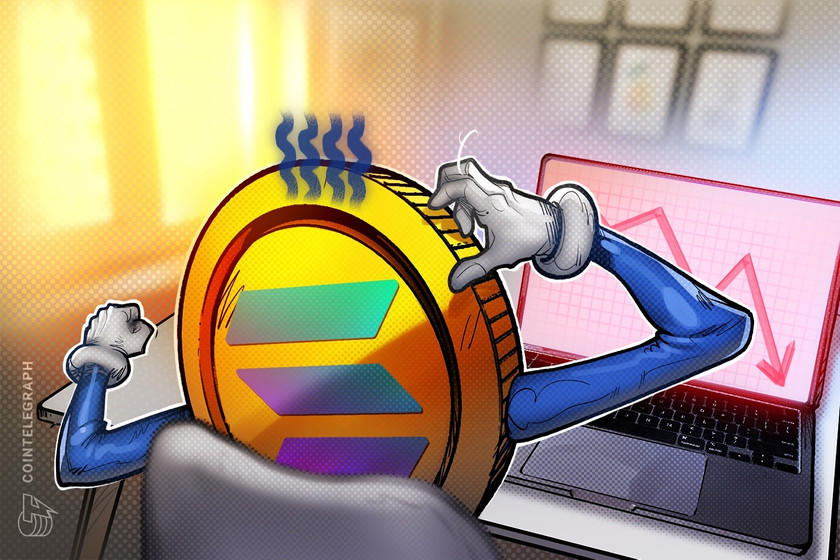

The latest Solana rally has had it return to the resistance range that prompted 25%–40% price pullbacks multiple times this year.
On April 17, the price of Solana’s SOL (SOL) crept lower in the wake of similar price moves across the top-ranking cryptocurrencies, including Bitcoin (BTC) and Ether (ETH).
SOL’s price dropped by over 4% to go under $24.50 despite rising to $26 — a two-month high — earlier in the day.
In comparison, BTC’s and ETH’s prices dropped 3.5% and 3%, respectively, hinting at a bearish start to the week.
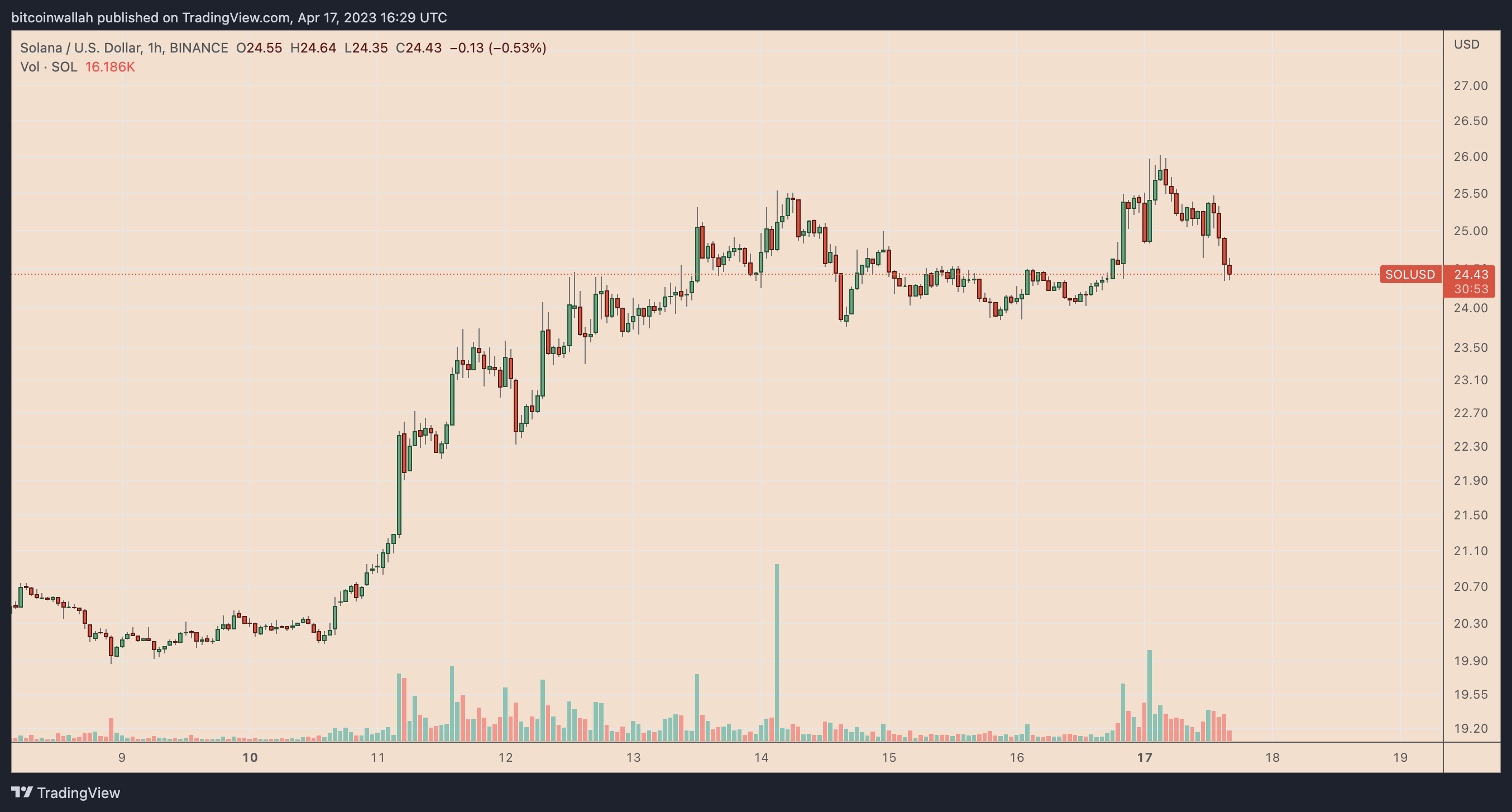
SOL price in a technical correction
The SOL/USD selloff on April 17 started after it entered its 2023 resistance range.
Notably, the $25–$27 price area has capped SOL’s upside attempts since January 2023. Testing it as resistance has preceded 25%–40% corrections on multiple occasions this year, as illustrated below.
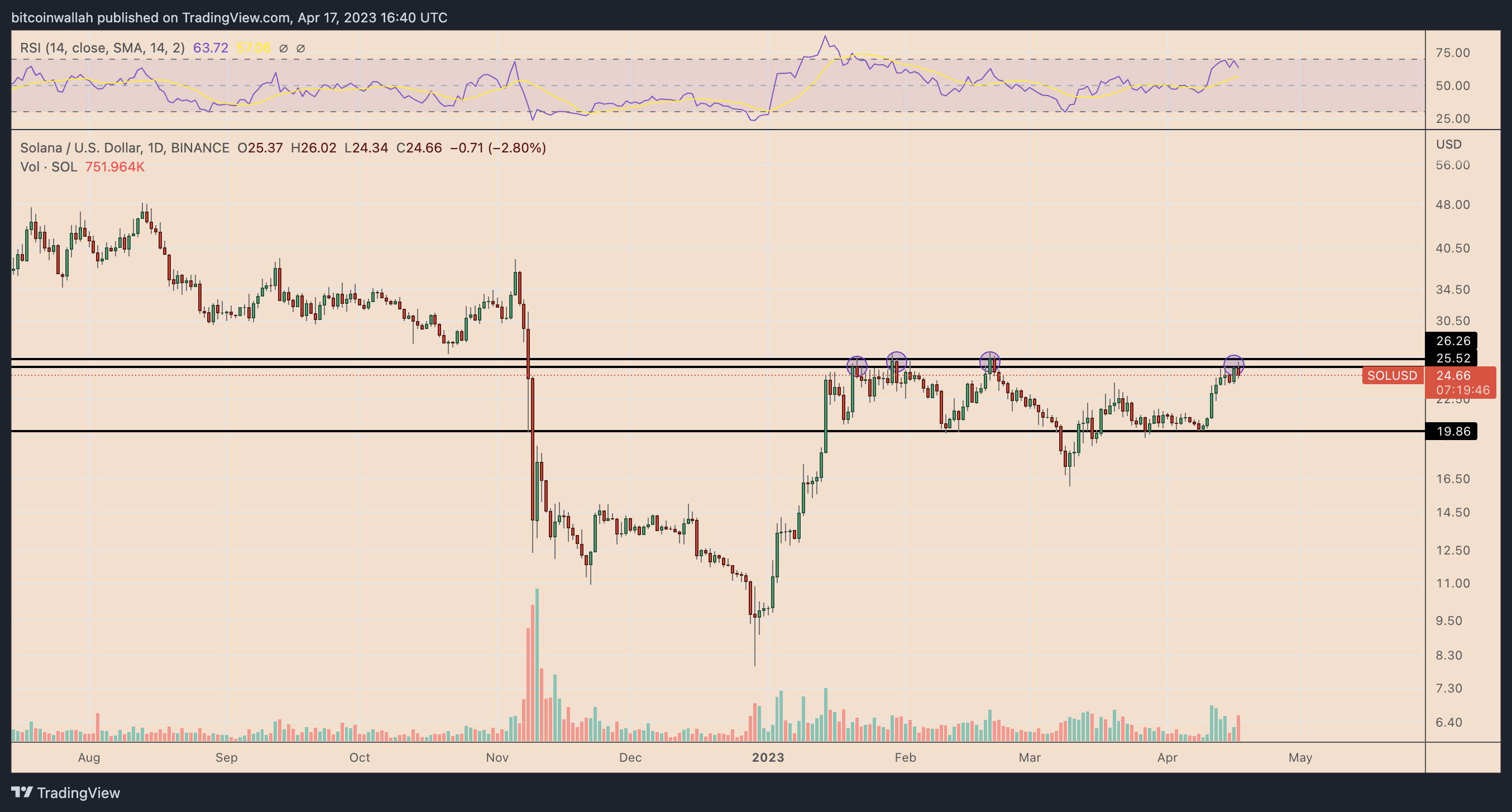
The possibility of undergoing a sharp bearish reversal in April has now increased as SOL’s price returns into the range and its daily relative strength index (RSI) hangs around the overbought threshold of 70.
In this bearish scenario, the immediate downside target appears to be around $20, about 20% lower than the current prices.
Conversely, a decisive breakout above the $25–$27 price range could have SOL price climb toward $30, which served as support in August–October 2022.
Such a breakout could extend until $35 over the next few months, a level that coincides with SOL’s 50-week exponential moving average (the red wave in the chart below).
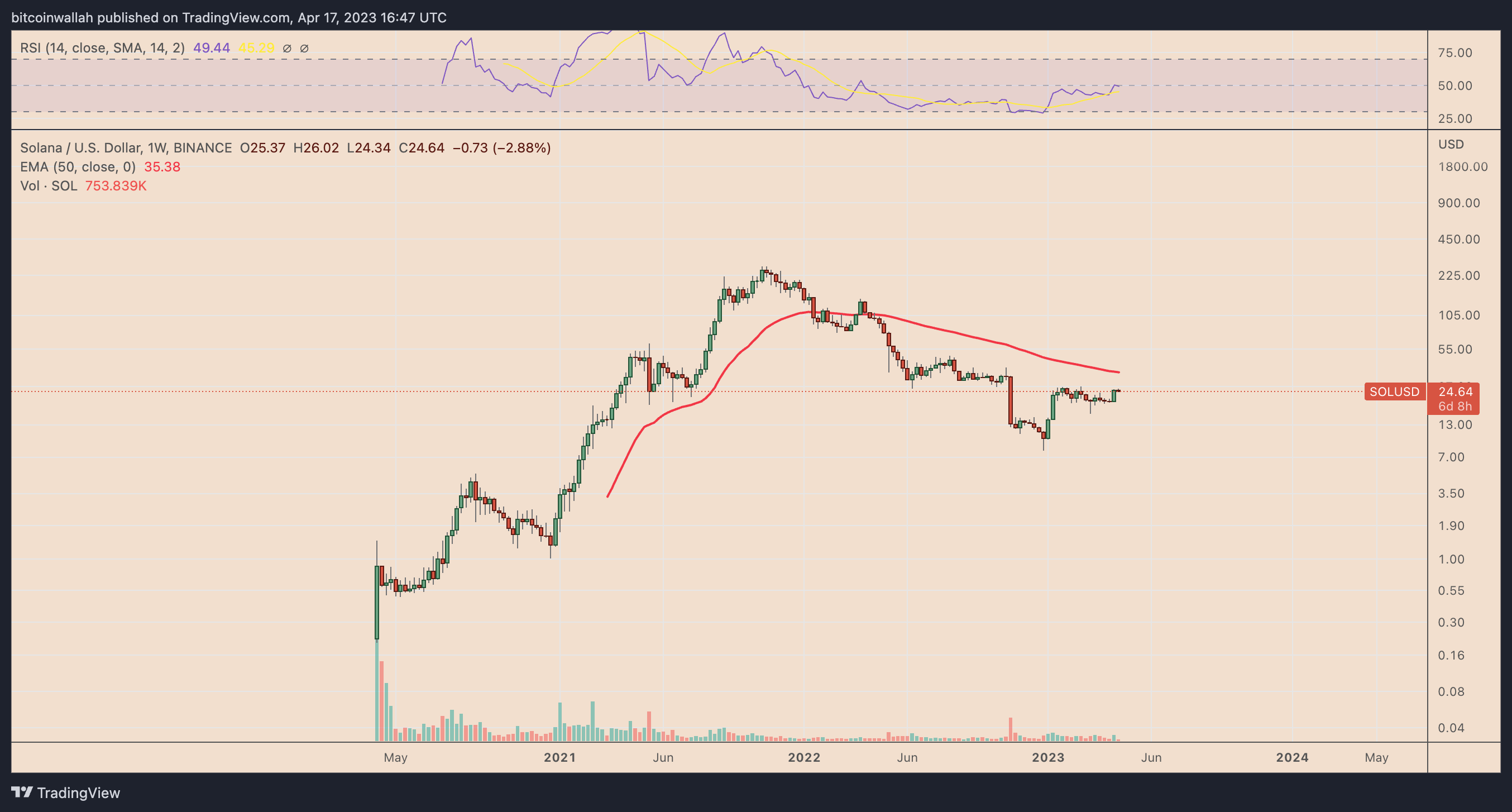
Grayscale Solana Trust goes public
On April 17, U.S.-based Grayscale Investments announced that its Grayscale Solana Trust had begun trading on OTC Markets under the symbol GSOL.
Related: Solana overcomes FTX fiasco — SOL price gains 100% in Q1
To recap, Grayscale Solana Trust is a security that derives its value from SOL’s spot price. In doing so, the trust enables investors to gain exposure in the Solana market while avoiding the challenges of buying, storing and safekeeping SOL directly.
Interestingly, SOL’s price dropped by up to 4.4% after the announcement, suggesting traders likely “sold the news” of an institutional Solana investment product going public.
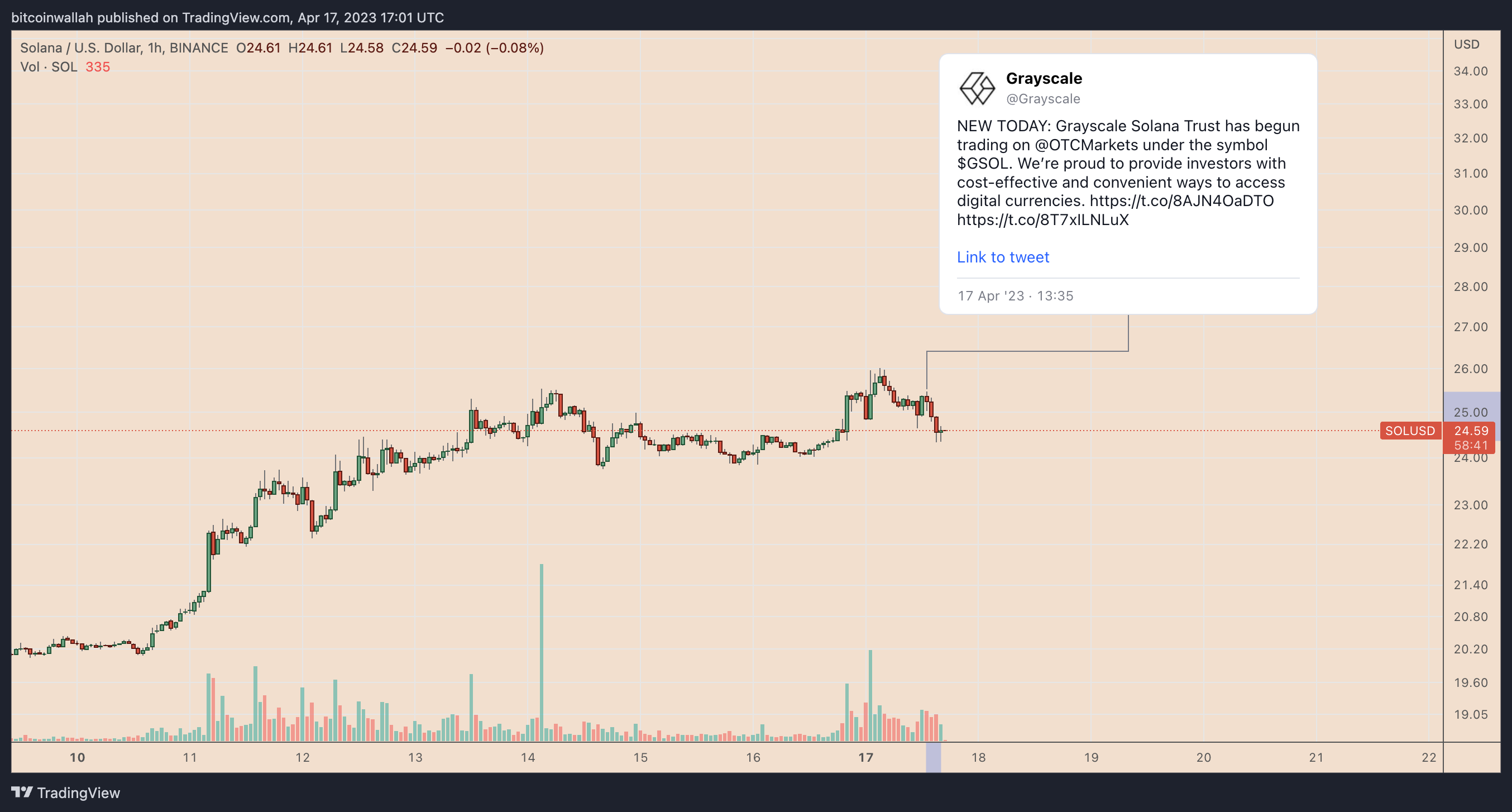
One reason for the bearish debut for GSOL is the current state of Grayscale trusts on the whole. Notably, they act like closed-end funds, meaning Grayscale cannot issue new shares or remove shares from the open market to adjust to capital inflow or outflow.
As a result, the share price of the Solana trust can deviate from the net asset value. This could spook investors in a bear market when their GSOL starts trading at a discount versus the value of Grayscale’s SOL reserves, similar to the Grayscale Bitcoin Trust.
As of April 17, Grayscale Solana Trust’s holdings per share were up around 148% year-to-date, stemming from identical gains in SOL/USD.
This article does not contain investment advice or recommendations. Every investment and trading move involves risk, and readers should conduct their own research when making a decision.




